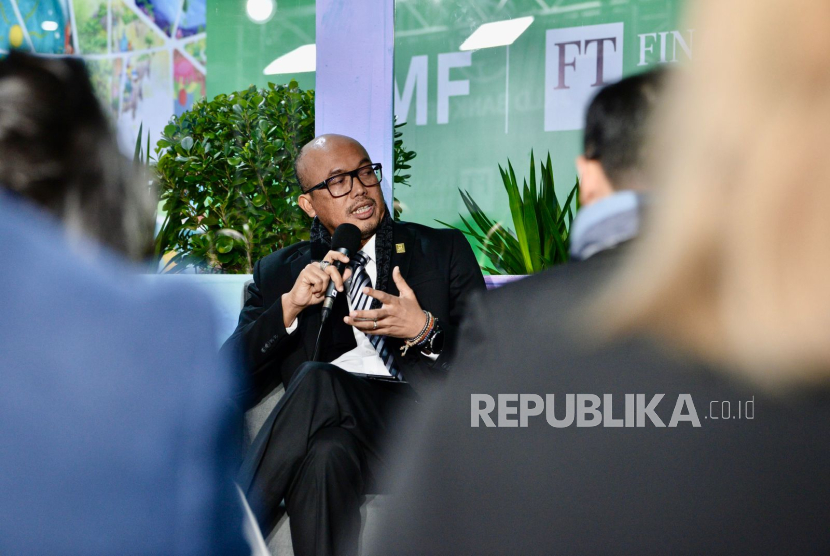REPUBLIKA.CO.ID, BAKU -- PT PLN (Persero) is ready to control the target of increasing the installed capacity of EBT up to 75 Gigawatts (GW) in the next 15 years, which the government has announced. To realize this, PLN invites all parties to collaborate in providing green funding to build sustainable clean energy plants in order to reduce carbon emissions.
During a panel discussion session at World Bank Pavillion COP29, Baku, Azerbaijan on Friday (15/11/2024), Dementrios Papathanasiou, Global Director of Energy & Extractives World Bank assessed that global efforts and collaboration from all parties are needed to support Indonesia's goal of achieving energy transition through the development of clean energy generation.
“Electric utilities such as PLN are the key to successful energy transition in Indonesia. There needs to be a strengthening of financial and operational performance so that clean energy investments can continue to be increased and can be sustainable,” Dementrios said .
Valerie Levkov, Global Director of Energy, Mining & Sustainable Infrastructure Advisory at the International Finance Corporation (IFC) stressed the role of the private sector in supporting green finance is crucial.
According to Valerie, the private sector can provide financing capacity and new technologies such as large-scale energy storage. He highlighted the importance of collaboration between the public and private sectors. The private sector can be an effective partner if there is regulation that allows a reasonable return on investment.
“In many countries, the private sector has successfully provided battery storage technology to support the integration of renewable energy into the grid. However, stable regulation and transparency of tenders are essential to attract the interest of investors,” Valerie said.
PLN's Director of Transmission and System Planning, Evy Haryadi confirmed that the achievement of new and renewable energy (EBT) targets requires significant investment as well as synergies from various stakeholders.
“We are preparing a number of plans to decarbonise in line with the net zero emissions target by 2060. One of them is with plans to build a 70,000 kilometer transmission network that will distribute green electricity to demand centers, but this process will take a long time. Therefore, financial support from various parties is indispensable,” Evy said.
Evy stressed that funding from the private sector and international institutions can be one of the main solutions to meet this huge investment need. Collaboration through green funding schemes, such as Green Bond and sustainable lending, is considered crucial to accelerate the development of EBT infrastructure in Indonesia.
In addition, Evy also explained that although Indonesia is rich in EBT resources, geographical challenges are an inhibiting factor. Many EBT resources are located on remote islands, while centers of energy demand are in urban ones.
“We face a unique challenge because our country is made up of many islands. Some islands have power but no electricity demand, while other islands have demand but resources are limited. That's why we need interconnection between islands as well as the construction of a long transmission network,” Evy said.
Evy also stressed the importance of stable regulatory support and strategic partnerships to ensure a smooth energy transition in Indonesia.
“We invite all parties, both the private sector, financial institutions, and governments, to collaborate to achieve this goal. Green funding and strong partnerships will be key to a successful energy transition in Indonesia,” concluded Evy.


